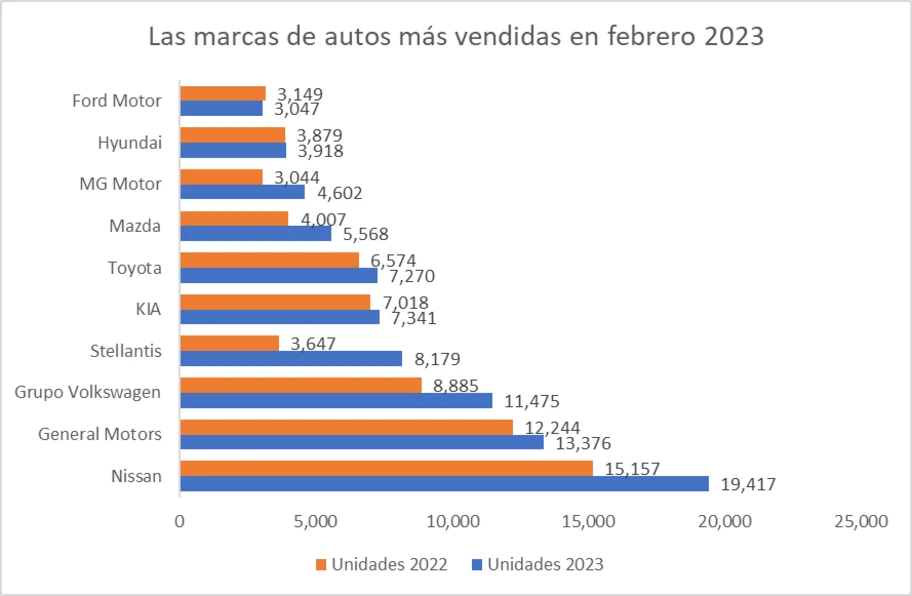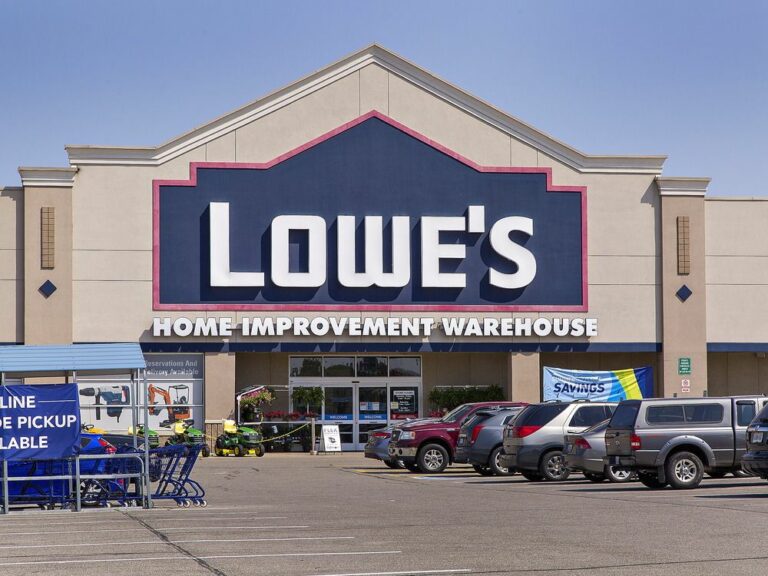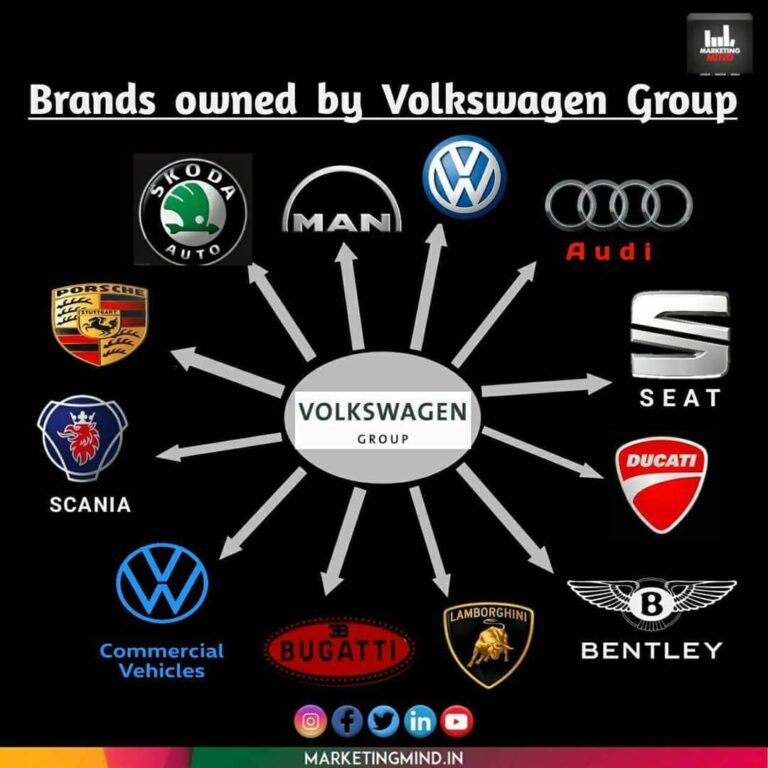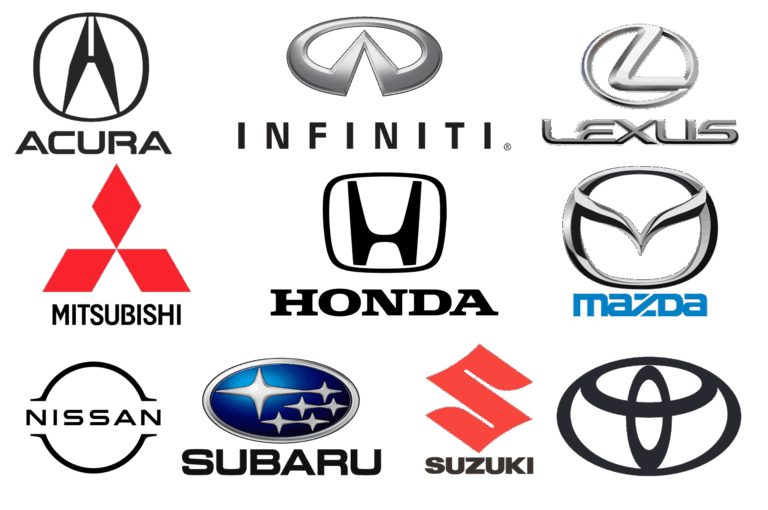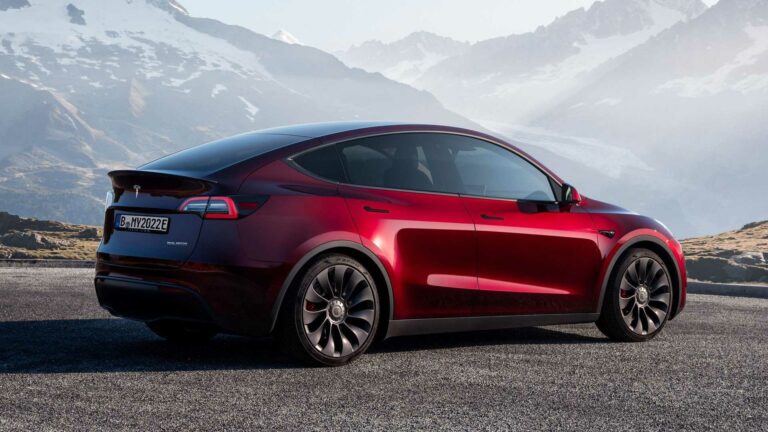Top Selling Car Brands: Navigating the Automotive Landscape
Top Selling Car Brands: Navigating the Automotive Landscape cars.truckstrend.com
In the vast and ever-evolving world of automobiles, certain brands consistently rise to the top, dominating sales charts year after year. These "Top Selling Car Brands" represent more than just high sales volumes; they are powerful indicators of consumer trust, market trends, technological innovation, and economic resilience. Understanding which brands lead the pack, and more importantly, why they do, offers invaluable insights for prospective car buyers, industry observers, and anyone interested in the pulse of global commerce.
From the bustling streets of Tokyo to the vast highways of America, and the intricate networks of European cities, these automotive giants shape our commutes, define our driving experiences, and push the boundaries of what’s possible on four wheels. Their consistent success reflects a delicate balance of reliability, design, affordability, and the ability to adapt to changing consumer demands and environmental imperatives. This comprehensive guide will delve into the realm of top-selling car brands, exploring the factors behind their dominance, offering practical advice for buyers, and peering into the future of this dynamic industry.
Top Selling Car Brands: Navigating the Automotive Landscape
The Giants of the Global Automotive Market: Identifying the Top Players
The global automotive market is a fiercely competitive arena, where billions of dollars are invested annually in research, development, manufacturing, and marketing. While the exact rankings can fluctuate slightly from quarter to quarter or year to year due to regional sales spikes or new model releases, a core group of automotive conglomerates consistently hold the top positions. These aren’t just individual brands but often encompass multiple marques under a single corporate umbrella, allowing for diverse product offerings and vast market reach.
Key players that frequently vie for the top spots include:
- Toyota (including Lexus, Daihatsu, Hino): A perennial leader, known for its unparalleled reliability, fuel efficiency, and strong hybrid technology.
- Volkswagen Group (including Audi, Porsche, Skoda, SEAT, Lamborghini, Bentley, Bugatti): A European powerhouse with a vast portfolio spanning from mass-market vehicles to ultra-luxury sports cars, and a strong push into electric vehicles.
- Hyundai-Kia (Hyundai Motor Group): Rapidly ascended the ranks, impressing with design, value, long warranties, and an aggressive electrification strategy.
- General Motors (including Chevrolet, GMC, Cadillac, Buick): A dominant force in North America, particularly with trucks and SUVs, now heavily investing in EVs.
- Stellantis (including Chrysler, Dodge, Jeep, Ram, Fiat, Peugeot, Citroën, Opel, Alfa Romeo, Maserati): Formed from the merger of FCA and PSA Group, boasting a massive global footprint and diverse offerings.
- Ford: Another American icon, strong in trucks and commercial vehicles globally, and making significant strides in electric vehicle development.
- Honda (including Acura): Renowned for engineering, reliability, and efficient engines, with a strong presence in sedans and SUVs.
- Mercedes-Benz & BMW (and their respective sub-brands): While not volume leaders globally in the same vein as Toyota or VW, they consistently lead the premium and luxury segments, often out-selling each other for the top luxury spot.
- Tesla: The disruptor, an electric vehicle pioneer that has rapidly climbed the ranks, redefining automotive technology and consumer expectations.
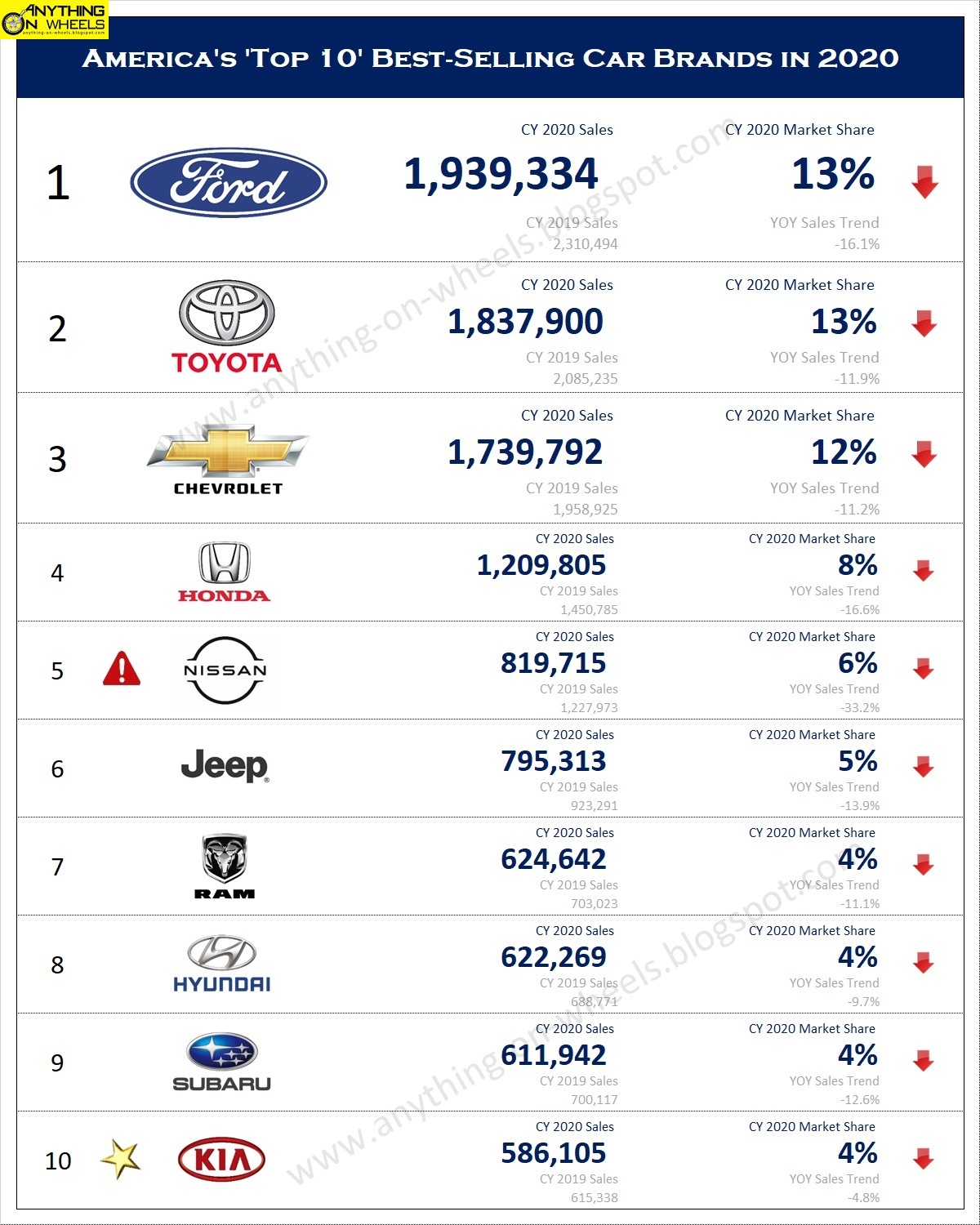
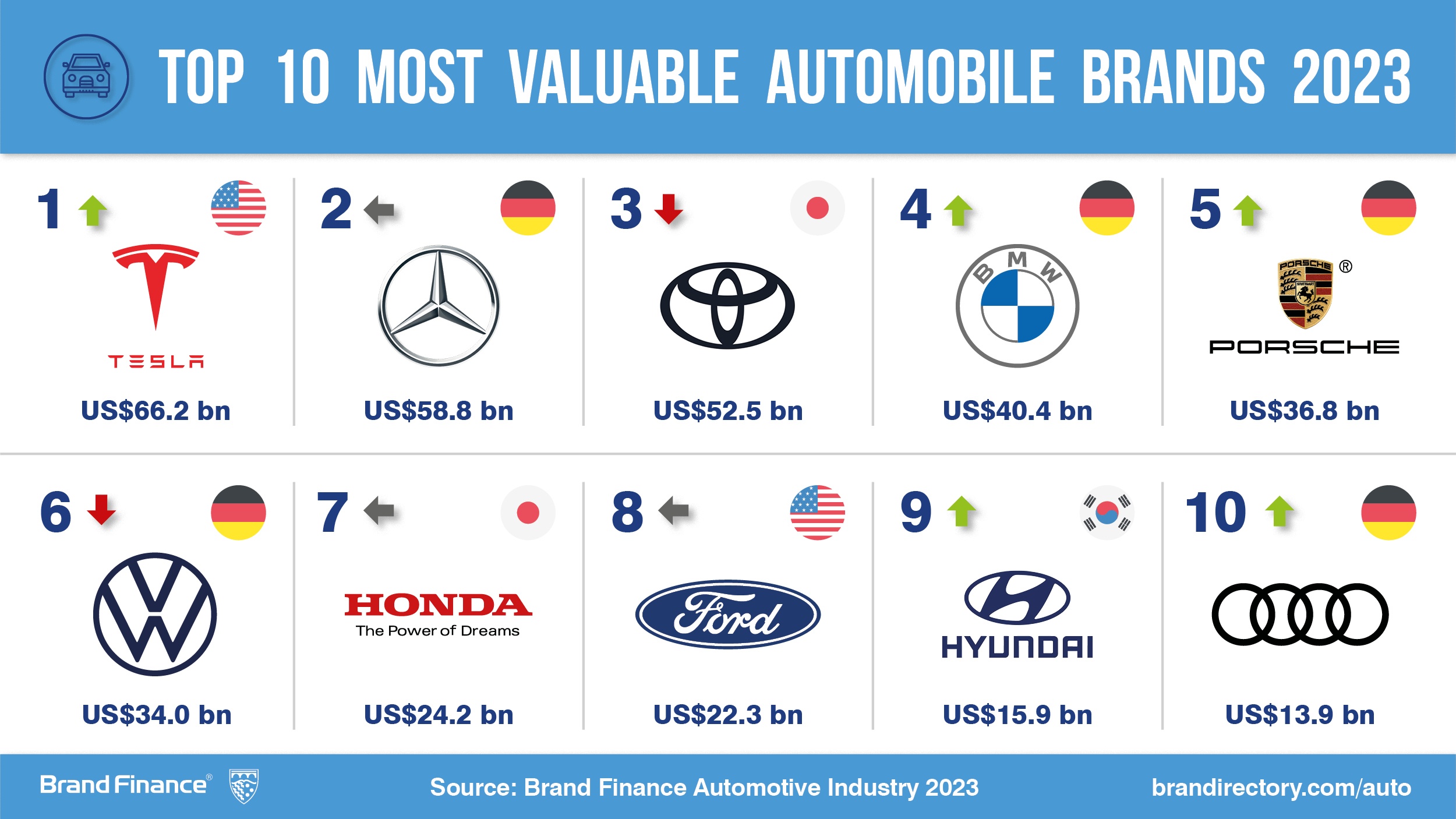
These brands, through their strategic diversification and global presence, command significant market share and dictate many of the industry’s trends.
Why Do These Brands Dominate? Key Factors Behind Success
The consistent high performance of top-selling car brands is no accident. It’s the result of meticulously crafted strategies, deep market understanding, and a relentless pursuit of excellence across multiple facets of their operations.
- Unwavering Reliability & Durability: Brands like Toyota have built their reputation on vehicles that simply last. Consumers prioritize dependability, and these brands deliver, minimizing maintenance costs and maximizing peace of mind.
- Innovation & Technology Leadership: From advanced safety features and intuitive infotainment systems to groundbreaking electric vehicle platforms and autonomous driving capabilities, top brands invest heavily in R&D. Tesla, for instance, leads with its software integration and battery technology, while Mercedes-Benz and BMW are synonymous with cutting-edge luxury and performance tech.
- Diverse Product Portfolios: The ability to offer a wide range of vehicles, from compact city cars and family-friendly SUVs to powerful trucks and luxurious sedans, allows these conglomerates to capture various market segments. The Volkswagen Group’s breadth, for example, caters to nearly every type of buyer.
- Global Reach & Efficient Manufacturing: Extensive manufacturing facilities and supply chains across continents enable these brands to produce vehicles efficiently at scale and cater to regional preferences. A vast dealer network ensures widespread availability, sales, and crucial after-sales support.
- Strong Brand Reputation & Effective Marketing: Decades of consistent quality and strategic branding have cultivated deep trust and loyalty among consumers. Memorable advertising campaigns and a clear brand identity reinforce their position in the market.
- Affordability & Value Proposition: While some top sellers operate in the premium segment, many achieve high volumes by offering excellent value for money. Brands like Hyundai-Kia have successfully combined stylish design, advanced features, and competitive pricing with robust warranties.
- Customer Service & After-Sales Support: A seamless buying experience, readily available parts, and a reliable service network are crucial for customer satisfaction and repeat business. Top brands excel in building long-term relationships with their clientele.
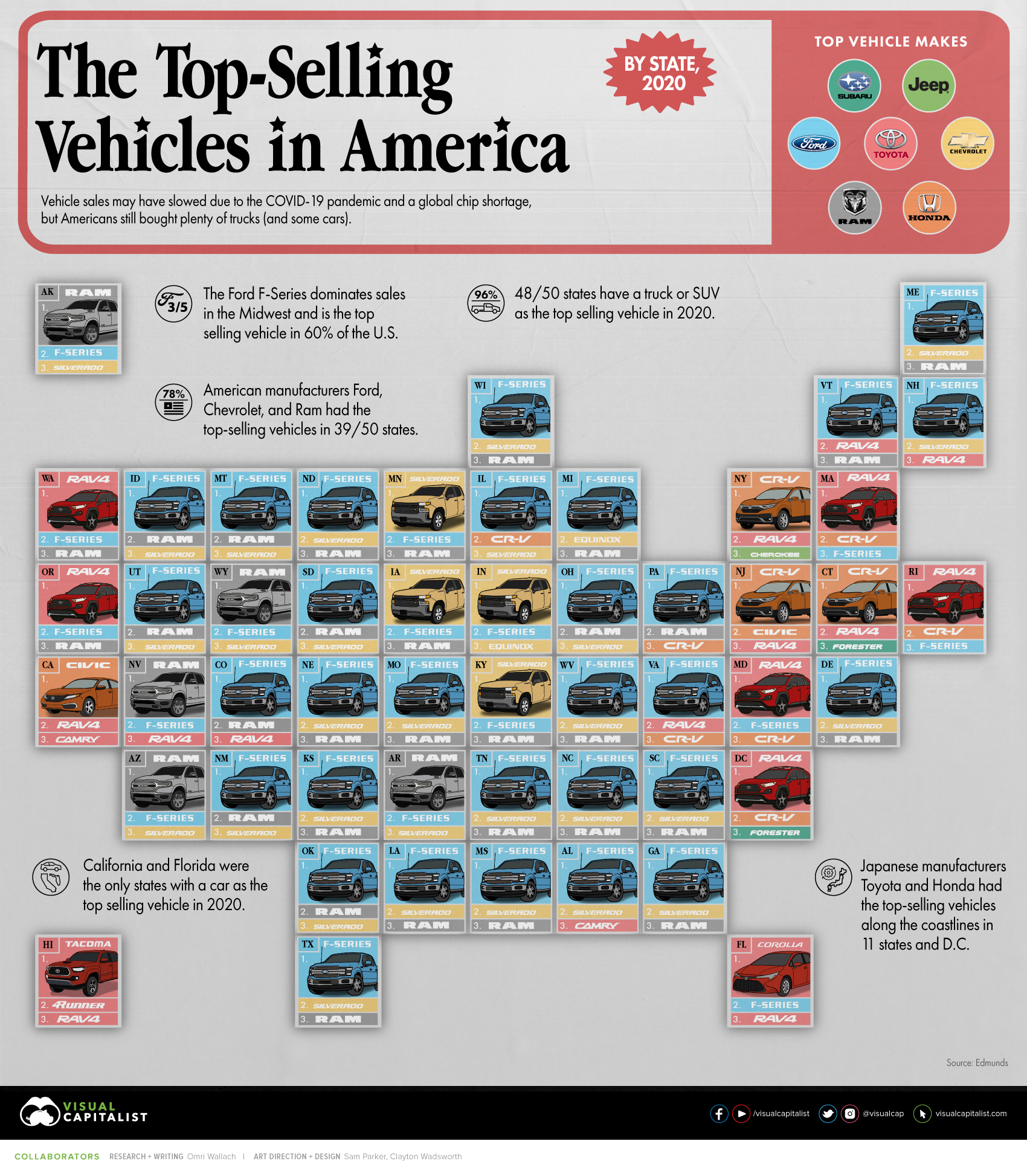
Deep Dive into Top Contenders
Let’s take a closer look at a few perennial top sellers and what makes them stand out:
- Toyota: The epitome of reliability, Toyota’s global dominance is built on a foundation of quality, durability, and value. Their commitment to hybrid technology, pioneered with the Prius, has given them a significant edge in fuel efficiency, with models like the RAV4 Hybrid and Camry consistently topping sales charts. Toyota’s manufacturing prowess and extensive global network ensure parts availability and service accessibility, contributing to high resale values.
- Volkswagen Group: This German behemoth demonstrates the power of a multi-brand strategy. Volkswagen itself offers popular models like the Golf and Tiguan, while Audi provides premium luxury, Porsche delivers high-performance sports cars, and Skoda/SEAT offer value-oriented options. Their massive investment in the MEB electric platform signifies a strong commitment to the EV future, aiming to leverage scale for competitive electric vehicles like the ID.4.
- Hyundai-Kia: Once considered budget brands, Hyundai and Kia have undergone a remarkable transformation. They now compete vigorously on design, technology, and quality, offering features often found in more expensive vehicles. Their industry-leading warranties instill confidence, and their rapid expansion into electric vehicles with critically acclaimed models like the Hyundai Ioniq 5 and Kia EV6 showcases their innovative spirit and aggressive pursuit of market share.
- Tesla: A true game-changer, Tesla’s rise is unprecedented. It challenged the traditional automotive industry by focusing solely on electric vehicles, integrating advanced software, and selling directly to consumers. While its volume is lower than the giants, its market capitalization often surpasses them, reflecting investor confidence in its technology and future growth. Models like the Model 3 and Model Y have become global best-sellers in the EV segment, proving the viability and desirability of electric mobility.
The Shifting Landscape: Emerging Trends and Challenges
The automotive industry is in a period of unprecedented transformation, and top-selling brands must adapt or risk losing their standing.
- The Electrification Revolution: The most significant trend is the accelerating shift towards electric vehicles (EVs). All major top-selling brands are pouring billions into developing new EV platforms, battery technology, and charging infrastructure. This transition presents both immense opportunities for new leaders and existential challenges for those slow to adapt.
- SUV & Crossover Dominance: Consumer preference has definitively shifted away from sedans towards SUVs and crossovers due to their versatility, perceived safety, and commanding driving position. Top brands have responded by expanding their SUV lineups, making this segment highly competitive.
- Supply Chain Disruptions: Recent global events, particularly the semiconductor chip shortage and geopolitical tensions, have severely impacted production, leading to vehicle shortages and increased prices. Top brands with diversified supply chains and strong relationships with suppliers are better positioned to navigate these challenges.
- Connectivity and Autonomous Driving: Vehicles are becoming increasingly connected, offering over-the-air updates, advanced infotainment, and seamless integration with smart devices. The long-term race is towards higher levels of autonomous driving, which promises to redefine transportation and could create new market leaders.
- Rise of New Players & Chinese Brands: New EV startups and established Chinese manufacturers (like BYD, Geely, SAIC) are increasingly making their presence felt not just in China, but globally. Their aggressive strategies and rapid innovation pose a significant threat to traditional top-selling brands.
Practical Advice for Buyers: Leveraging Top Seller Information
For consumers, understanding the top-selling car brands offers valuable guidance in the car-buying journey:
- Reliability & Resale Value: Top-selling brands often have a proven track record of reliability, which translates to lower ownership costs and higher resale values. This is a significant financial benefit in the long run.
- Parts Availability & Service Network: Due to their high sales volumes, parts for top-selling models are usually readily available and their service networks are extensive, making maintenance and repairs more convenient and often more affordable.
- Market Acceptance: Buying a popular model from a top brand means there’s a large community of owners, plenty of online resources, and established reviews to help you make an informed decision.
- Informed Choice, Not Exclusive Choice: While top sellers offer many advantages, don’t limit your search exclusively to them. Niche brands or models might better suit specific needs or offer unique features. Always test drive, compare features and prices across multiple brands, and read independent reviews.
- Consider the Future: With the rapid shift to EVs, think about your long-term needs. Are you ready for an EV? Do the top-selling brands offer compelling electric options that fit your lifestyle?
Global Automotive Powerhouses: A Quick Overview
| Brand (Parent Company) | Key Strength(s) | Primary Market Focus | General Price Segment | Noteworthy Models/Categories |
|---|---|---|---|---|
| Toyota (Toyota Motor Corp.) | Unparalleled Reliability, Hybrid Tech, Global Reach | Global (esp. N. America, Asia) | Mid-Range to Premium | RAV4, Camry, Corolla, Prius, Tacoma |
| Volkswagen (VW Group) | Diverse Portfolio, German Engineering, EV Push | Europe, China, Global | Value to Premium | Golf, Tiguan, Jetta, ID.4, Audi A4, Porsche 911 |
| Hyundai-Kia (Hyundai Motor Group) | Value, Design, Warranty, Rapid EV Adoption | Global (esp. Asia, N. America) | Value to Mid-Range | Elantra, Tucson, Telluride, Ioniq 5, EV6 |
| General Motors (GM) | Truck/SUV Dominance, EV Investment | North America, China | Mid-Range to Premium | Silverado, Sierra, Equinox, Escalade, Bolt EV |
| Stellantis | SUV/Truck Power, Diverse Brands | Europe, N. America | Value to Premium | Jeep Wrangler, Ram 1500, Fiat 500, Peugeot 3008 |
| Ford | Truck/Commercial, Innovation, EV Growth | North America, Europe | Mid-Range to Premium | F-Series, Explorer, Mustang Mach-E, Ranger |
| Honda | Engineering Excellence, Reliability, Fuel Efficiency | Global (esp. N. America, Asia) | Mid-Range | CR-V, Civic, Accord, Pilot |
| Tesla | EV Pioneer, Software, Performance | Global (Direct Sales) | Premium | Model 3, Model Y, Model S, Model X |
Frequently Asked Questions (FAQ)
Q1: How are "top-selling" car brands determined?
A1: Top-selling brands are determined by their total vehicle sales volume over a specific period (e.g., annually, quarterly) across global markets. This data is compiled by industry analytics firms and national automotive associations.
Q2: Do top-selling brands always offer the best quality?
A2: While top-selling brands generally have high standards of reliability and build quality, "best quality" can be subjective and depend on individual priorities. They typically excel in areas like durability, safety, and after-sales support, but a smaller, specialized brand might offer superior performance or luxury in a niche segment.
Q3: Are luxury brands ever "top-selling" in the overall market?
A3: Luxury brands like Mercedes-Benz, BMW, and Audi are rarely "top-selling" in terms of overall unit volume compared to mass-market brands like Toyota or Volkswagen. However, they consistently lead the premium and luxury segments, often competing fiercely for the top spot within that specific market niche.
Q4: What’s the impact of electric vehicles (EVs) on top-selling brands?
A4: The rise of EVs is profoundly impacting sales rankings. New EV-focused players like Tesla have rapidly gained market share, pushing traditional automakers to accelerate their electrification strategies. Brands that successfully transition to EVs while maintaining their core strengths are likely to remain top sellers in the future.
Q5: Should I only consider top-selling brands when buying a car?
A5: Not necessarily, but considering top-selling brands offers several advantages, including proven reliability, strong resale value, extensive service networks, and readily available parts. However, it’s always advisable to research and test drive vehicles from various brands to find the one that best fits your specific needs, budget, and preferences.
Conclusion
The landscape of top-selling car brands is a dynamic reflection of global consumer preferences, technological advancement, and fierce corporate competition. Brands like Toyota, Volkswagen, Hyundai-Kia, and the American giants continue to dominate by consistently delivering on reliability, innovation, and value, while adapting to monumental shifts like electrification.
For consumers, understanding these market leaders provides a valuable benchmark for quality, reliability, and long-term ownership benefits. However, as the industry charges into an electrified, connected, and increasingly autonomous future, the battle for the top spots will only intensify, making the automotive landscape an even more fascinating and crucial sector to watch. Ultimately, while sales figures paint a picture of success, the truly enduring brands are those that continue to earn the trust and loyalty of drivers worldwide.
